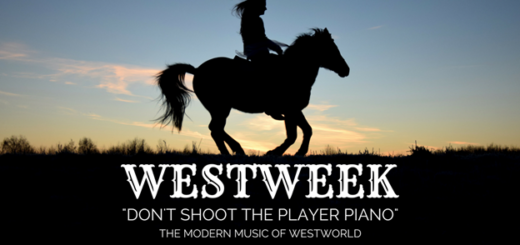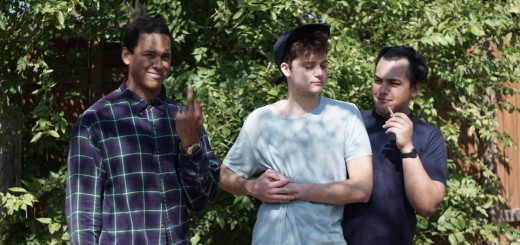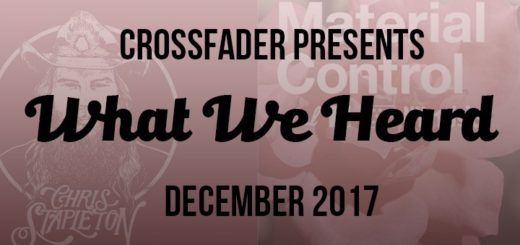I Was Young When I Left Home (Or, How Bob Dylan Saved My Life)
“I was young when I left home.” In seven words, Bob Dylan summed up the exact world-weary anguish I struggled to articulate for years. At age 18, an emaciated ragamuffin of a child, this was not my first time hearing Bob Dylan. It was the first time I wondered if, by some bizarre skip in time, he had somehow lived my life before. I will never know how Dylan, who had yet to experience such bereaved defeat, knew the exact words I needed during the most harrowing years of my life. For a while, my memories were craggy and distorted, blocked from my mind in an unconscious strategy of self-protection. All I remember from these gaps in time are the songs that carried me through them. I had no desire to revisit what lives in those lyrics, but then those words, the words that hold my story, won the Nobel Prize. I am at a place now where I can start to unravel the significance of his words and what they meant to me, as the value and power of these words has been vindicated. Allow me to tell the story of what these words mean, in the hopes that it might give some context to the words as a whole.
“You must leave now, take what you need, you think will last / but whatever you wish to keep, you’d better grab it fast / yonder stands your orphan, with his gun / crying like a fire, in the sun.” During my first semester at Chapman University, with little warning, my parents sold our house and moved to Hong Kong. Bright-eyed, innocent, and very much still a child, I found myself adrift, with nowhere to go for the winter holidays. In a fit of rebellion, I caught a red-eye to New York City. I listened to Bob Dylan on the plane, comforting myself with the characters in his songs. Feelings of abandonment and worthlessness were replaced with excitement as I heard the thrill of boundless freedom in the words, “heading out for the East Coast / Lord knows I’ve paid some dues.” If I felt untethered or astray, I’d listen to “Like A Rolling Stone,” and remind myself that I had a partner in crime: “How does it feel to be on your own / with no direction home?” I’ll tell you, Mr. Dylan, when you’re shiny and unmarred, it doesn’t feel bad at all.
“You lose yourself, you reappear / you suddenly find you got nothing to fear.” Enterprising and self-assured, I started doing publicity for a wonderful band called Silverbird. I lived with well-known musicians, and spent nights flitting about dazzling Williamsburg clubs. The dizzy high of amphetamines swallowed most of my heartsickness, and I spent sleepless nights taking the subway to parties in Bedford: “And the all night girls / they whisper of escapades out on the D train.” I’d walk the city listening to Dylan sing about Verlaine and Rimbaud. On quiet mornings, spent and exhausted, I’d listen to “Boots of Spanish Leather” and watch the sun rise over the East River. It was exciting to play pretend: I was some wayfaring child and he was the original vagabond. I had little reason to worry; soft-eyed and baby-faced, somebody always kept a watchful eye on me.
“Now, little boy lost, he takes himself so seriously / He brags of his misery, he likes to live dangerously.” I met a charming, beautiful boy at Aviv, and it did not take long for us to fall in love. Elston was creative, smart, and at times, incredibly tender and caring. A few days after I turned 19, I packed my pretty crochet dresses and we squeezed into his gentrified, Bushwick loft. You don’t notice things like track marks or missing money when you feel young, faulty, alone, and somebody calls you pretty. I had an instinct that something was amiss, but Elston kept his heroin addiction well hidden, if he had had to have taken part in something like a 5 panel standard drug test then maybe things would have been different and we would have seen his addiction. I took for granted that somebody would value my life enough not to put it at risk. He was older than me, and I trusted his denial about the subject foolishly. We took a weekend trip to DC, and Elston, driving on benzos, hit a curb, nearly flipping the car. I realized I was in danger, but I had no home to return to.There were options, had I decided to leave, but I felt responsible for his life. Thinking I might be able to save him, I chose to stay. Fearful and uncertain, I listened to “Desolation Row,” wishing I had understood the warning in the lyrics I had previously ignored.
“And the phantom’s shouting to skinny girls / get out of here if you don’t know / Casanova is being punished for going to desolation row.” The illness of addiction made Elston violent and cruel. I ignored the physical and non-physical possessions he stole from me. Eventually, he agreed to go to rehab after some drug testing (you can read more about how those tests work online). I was extremely attentive and supportive, joining him for lunch and accompanying him to NA meetings in the evening. I began to intern at my dream record label for school credit, I went out with friends, and I had fun. I was hopeful for when Elston would be discharged. I’d imagine him coming home, sober and healthy: “Then the sands will roll out a carpet of gold, for your weary toes to be a-touchin’ / and the ship’s wise men will remind you once again, that the whole wide world is watchin.”
“I don’t like it in the wind / I wanna go back home again / but I can’t go home this way.” Unfortunately, I learned that no amount of love can stop a person from relapsing. I spent mornings, raw, battered, and disenchanted, listening to Dylan. He seemed to be the only person who comprehended the overwhelming feeling of hopeless despondency. I relied on Dylan as the one friend I could go to for comfort, who would not judge, but simply understand. After one unforgivable event, weak, worn, and spiritless, I took the L train to Manhattan to stay with a friend. We took the Long Island Railroad up to Jones Beach, spring starting to brighten up the coast. I sang to myself to dull my fear, and thought of my parents: “Maybe it’s the colour of the sun caught flat and covering / the crossroads I’m standing at / or maybe it’s the weather or something like that / but Mama, you’ve been on my mind.”
“I bargained for salvation, and they gave me a lethal dose.” Dylan, once again, predicted my future. I stopped eating in an attempt to starve out the all-encompassing pressure and pain. When the hunger became too painful, I closed my eyes and repeated lyrics like a prayer: “Try imagining a place where it’s always safe and warm.” Three months later, underweight, broken, and bone-weary, I passed out on Bleeker Street beside my friend. (“Take the motherless children off the street / and place them at the feet of a harlot.”) I woke up in New York Presbyterian Hospital, my parents flying in the next day. I could not find any words to explain the past six months. The only thing that came to mind was the song “A Hard Rain’s A-Gonna Fall: “Where have you been, my blue-eyed son / And where have you been, my darling young one / I’ve stumbled on the side of 12 misty mountains / I’ve walked and I crawled on 6 crooked highways…”
I chose a hospital in California where I would spend the next three months recovering from my eating disorder. (“I’m going where the chilly winds don’t blow.”) Leaving Elston was the hardest thing I had to do. I comforted myself in Dylan’s words, “Forget the dead you left / they will not follow you….Strike another match, go start anew / and it’s all over now, baby blue.” Recovering from my eating disorder was harder than I could have ever imagined. I gained back the 20-odd pounds I’d lost, but my mind was still fragmented and numb.
“Every time I think about about him now / Lord I just can’t keep from cryin’ / ‘Cause he was a friend of mine.” Elston passed away of a heroin overdose on October 26, 2015, while I was still in the hospital. The time that followed is too messy and painful for me to untangle. “They say the darkest hour / is right before the dawn” : these words became my mantra. “How many roads must a man walk down / before you call him a man / and how many seas must a white dove sail / before she sleeps in the sand?” How many paths did I have to tread through until I learned the lessons I needed to in this lifetime? How long until I could rest, once again as pure and unmarked as a dove?
“Do I understand your question man / is it hopeless and forlorn?” Dylan, at the unscarred age of 22, summed up the startling, complex, evasive process of healing in a simple sentence: “Ah but I was so much older then / I’m younger than that now.” Wasted and battle-weary, I returned to school for the spring semester. Existing on a mangled, blasé plane and unable to connect with anyone on campus, I worried I’d lost a decade of my youth. But, as always, Dylan was right. On the day in early February when I turned 20, I pulled a Benjamin Button and the clock sprung backwards. Realistically, time had, excruciatingly slowly, begun healing some of my wounds. Little by little, my eyes became brighter. I inched towards the friendly, bubbly person I used to be. Now, at 20, I’m younger than I ever felt at 19. Of course, the pain never completely goes away. Dylan knew this too: “And I’ve never gotten used to it / I’ve just learned to turn it off.” Early in spring, when I was just starting to get stitched back together, I found myself getting coffee with a boy instead of sitting at the headstone of a dead one. Ghosts roared and pain thrust through the most tender spots of my ribs. But by some twist in the universe, or guiding force, our conversation started with Bob Dylan. That was all I needed to release the burning guilt that mangled my heart. I went on many dates after that, no longer fearful or contrite.
“Ramona, come closer / shut softly your watery eyes / the pangs of your sadness will pass / as your senses will rise.” This fall, I realized I was blindly navigating one-year anniversaries with no map to warn me when wounds might suddenly bleed. I filled every minute of my schedule, hoping that a magnitude of internships and classes would keep the memories from nipping at my mind. Pain does not work this way; alone or on a film set surrounded by people, visions of needles and sunken eyes leave me smarting and breathless. One day, desperate to ward off flashbacks, I began to sing aloud without realizing it, and I understood what these words really are: a gift.
How did Dylan, an average, middle-class, suburban kid from Minnesota, with no hardship to speak of, have the most earnest understanding of trial, loss, and suffering? It is because his profound abilities of empathy and expression are a rare gift, allowing him to write words that act as a compass. Words that can guide one through the most insurmountable feelings of rootlessness and longing. Words are there to soothe us when we are anxious and jumpy, when our bones ache from exhaustion and our eyes burn. He is there, ready to walk the merciless nights alongside us, softly reminding us that he, too, has been through this before: “Take me disappearing through the smoke rings of my mind, down the foggy ruins of time / far past the frozen leaves, the haunted, frightened trees / out to the windy beach / far from the twisted reach of crazy sorrow…with all memories and fate, driven deep beneath the waves / let me forget about today until tomorrow.” Dylan knew the future before it occurred, and understood the past without retrospect. These words will act as your protection, as they did for me when the world fell away and vision meant nothing. I was young when I left home, but as long as I had these words, I was never alone.



